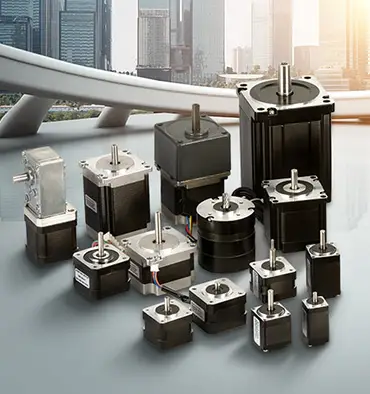Do stepper motors have encoders?
The question of whether stepper motors have encoders is an important one, as it can have a significant impact on the performance and reliability of the motor. In this article, we will provide a detailed explanation of how stepper motors work, and whether they have encoders. We will also discuss the advantages and disadvantages of using encoders in stepper motors, and why they may or may not be used in different types of stepper motors.
What is a Stepper Motor?
A stepper motor is an electric motor that rotates in discrete steps, or increments, rather than continuously. This makes it ideal for applications where precise control of the motor's position is necessary, such as in printers, scanners, and other types of precision machinery.
Stepper motors are different from other types of motors in that they have a fixed number of steps per revolution. This means that the motor can only rotate in discrete steps, rather than continuously. For example, a stepper motor with 200 steps per revolution will rotate in 200 equal steps, each corresponding to a 1.8 degree increment of rotation.
Do Stepper Motors Have Encoders?
Now that we have a basic understanding of how stepper motors work, we can answer the question of whether they have encoders. The short answer is that some stepper motors have encoders, but not all of them do.
An encoder is a device that is used to measure the position, velocity, or acceleration of a motor. Encoders are typically used in applications where precise control of the motor's movement is necessary, such as in robotics, automation, and other precision systems.
Some stepper motors are designed to be used with encoders, while others are not. The decision to use an encoder with a stepper motor will depend on the application and the requirements for precision and accuracy. In general, stepper motors that are used in applications that require high levels of precision and accuracy will benefit from the use of an encoder.
Advantages of Using Encoders in Stepper Motors
Despite these challenges, there are some advantages to using encoders in stepper motors. Some of the main advantages of using encoders in stepper motors include:
- Precision: Encoders can provide precise and accurate measurements of the position, velocity, or acceleration of a stepper motor, which can improve the performance and accuracy of the motor.
- Control: Encoders can be used to control the movement of a stepper motor, which can improve the reliability and consistency of the motor's performance.
- Feedback: Encoders can provide feedback on the performance of a stepper motor, which can be used to diagnose and troubleshoot problems with the motor.
There are some advantages to using encoders for stepper motors, not all stepper motors have encoders, but they can be used in conjunction with encoders for more precise control in some applications.


Leave a Reply